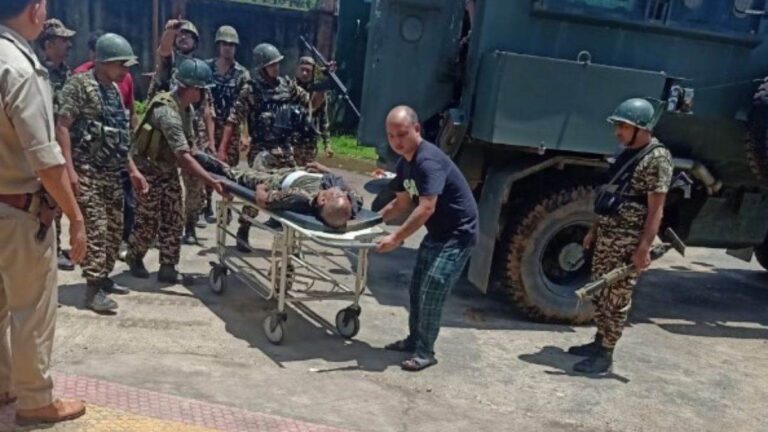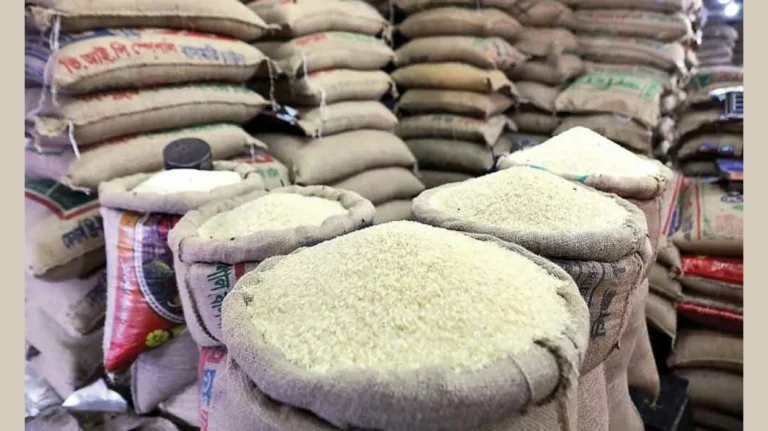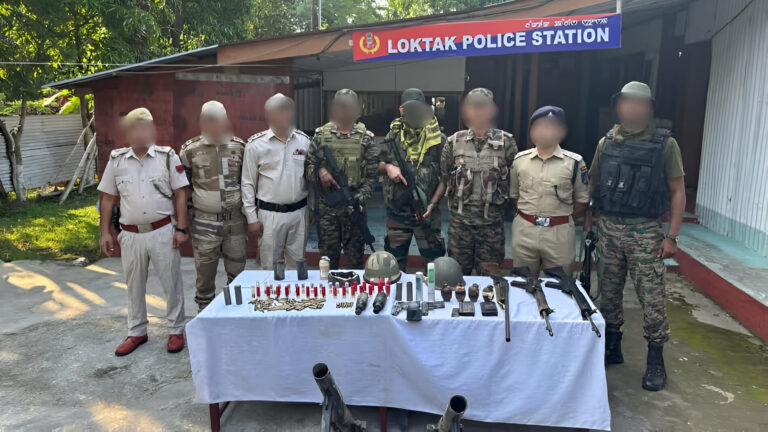Manipur Police Arrest Three Militants, Recover Arms and Drugs in Statewide Crackdown
On September 4, 2025, Manipur Police carried out coordinated anti-insurgency operations across the state, arresting three active militants — including identified cadres of the Kangleipak Communist Party’s People’s War Group (KCP-PWG) and RPF/PLA — and recovering large weapons caches (INSAS, AK-56, M16, explosives, hand grenades, RPG shell and more). Separate teams also disrupted a drug smuggling attempt at Tadubi check post, seizing over 2 kg of brown sugar and making related arrests. Investigations and interrogations are ongoing.
What the police reported — the bare facts
Manipur Police announced a statewide campaign on September 4, 2025, which resulted in the detention of three active militants and the recovery of sophisticated weapons caches across multiple districts. Among the arrested were:
- Kongbrailatpam Hemabati Devi (57) from Singjamei — named as an active KCP-PWG member accused of extortion and intimidation; items seized from her residence included a Honda Activa, two mobile phones and an Aadhaar card. India Today NE
- Konjengbam Ajit Singh (alias Suresh, 54) — identified as an RPF/PLA cadre; detained in Imphal East with an Aadhaar card and a small amount of cash recovered. India Today NE
- Konjengbam Orbit Singh (alias Naotomba, 26) — a KCP-PWG operative arrested in Thoubal district, accused of extortion, intimidation and alleged kidnapping for ransom. India Today NE
In parallel, police uncovered major weapons stores: an INSAS rifle with magazine, country-made pistols, ammunition, gelatin sticks, live detonators and explosive wiring in one cache; a second cache reportedly held an AK-56, M16, hand grenades, tube launchers, bulletproof equipment, an RPG shell and substantial ammunition. The scope of arms points to the possibility of capability for both urban and rural attacks if not intercepted.
Also on the radar: drugs and smuggling routes
Separate but connected enforcement action targeted narcotics. On September 3, security teams at Tadubi check post (Senapati district) intercepted and arrested five persons attempting to smuggle over 2 kg of brown sugar using two Gypsy vehicles; subsequent investigations led to an additional arrest of Kimneilam Haokip (Kangpokpi district) for alleged involvement in the operation. These drug seizures are significant because narcotics flows often fund armed groups and criminal networks. Breaking drug corridors can therefore hit both crime and insurgency financing simultaneously.
5 FAQs
1. Q: Who exactly was arrested in this operation?
A: Authorities named three arrests: Kongbrailatpam Hemabati Devi (57) — identified as a KCP-PWG member; Konjengbam Ajit Singh (alias Suresh, 54) — an RPF/PLA cadre; and Konjengbam Orbit Singh (alias Naotomba, 26) — another KCP-PWG operative. Items including a scooter, mobile phones and identity documents were recovered from homes during the raids.
2. Q: What weapons were seized and why is that important?
A: Police recovered military-grade weapons across caches — including an INSAS rifle, AK-56, M16, hand grenades, gelatin sticks, live detonators, tube launchers and an RPG shell. Such arsenals can enable high-lethality attacks; removing them reduces immediate operational capability of armed groups.
3. Q: How were drugs involved in these operations?
A: On September 3 at the Tadubi check post, security personnel arrested five individuals attempting to smuggle over 2 kg of brown sugar in two Gypsy vehicles; investigators later arrested an additional suspect linked to the smuggling. Large drug seizures can disrupt funding lines that support armed activity.
4. Q: Will these arrests lead to long-term peace?
A: Arrests are necessary but not sufficient. Lasting impact requires breaking financial, logistical and political support for armed groups — via thorough investigations, prosecutions, development interventions, rehabilitation for users and social programs that address grievances.
5. Q: How can communities help police efforts without being at risk?
A: Safe channels — anonymous tips, community policing helplines, and cooperating with verified police outreach — are effective. Avoid direct confrontations with suspected armed actors. Local leaders can also push for grievance redress, economic aid and rehabilitation services to reduce the local appeal of illegal incomes.



